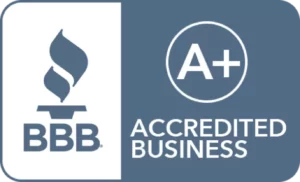Most people mistakenly believe that their IRA must invest in bank CDs, the stock market, or mutual funds. Few Investors realize that the IRS permits real estate to be go inside IRA retirement accounts. And it always has. Investments in real estate with a Self-Directed IRA (also known as a Real Estate IRA) are fully permissible under the Employee Retirement Income Security Act of 1974 (ERISA). IRS rules permit you to engage in almost any type of real estate investment, aside generally from any investment involving a disqualified person.
In addition, the IRS states the following on their website:
…..IRA law does not prohibit investing in real estate but Trustees are not required to offer real estate as an option.
Income or gains by an IRA generate tax-deferred/tax-free profits. Using a Real Estate IRA allows the IRA to earn tax-free income/gains and pay taxes at a future date. In the case of a Roth IRA the income/gains are always tax-free, rather than in the year the investment produces income.
Why Use a Real Estate IRA to Invest
- Gains are tax free
- Positive cash flow is tax free
- No time limit for holding property
- IRA can borrow money – Leverage your investment with non-recourse financing
- Potential to earn a larger rate of return on invested capital
When purchasing real estate with a Self-Directed IRA, in general, all income and gains your pretax retirement account investment generates will typically flow back into the retirement account tax-free. Instead of paying tax on the returns of a real estate investment, you pay tax at a later date. This allows the real estate investment to grow unhindered. You generally make Self-Directed IRA real estate investments when a person earns higher income and is in a higher tax bracket. Withdrawals come out of an investment account when a person earns little or no income and has a lower tax rate.
For example, Joe established a Self-Directed IRA with $100,000 to purchase real estate and make other investments. Assume Joe kept his Self-Directed IRA LLC open for 20 years. Further assume that Joe was able to generate an average annual pretax rate of return of 8% and the average tax rate was 25%. By using a Real Estate IRA, after 20 years, Joe’s $100,000 investment would be worth $466,098 – a whopping $349,572 after taxes on the earnings. Whereas, if Joe made the investments with taxable funds (non-retirement funds) Joe would have only accumulated $320,714 after 20 years.
Types of Real Estate Investments
Below is a partial list of real estate-related investments that you can make with a Self-Directed IRA LLC:
- Raw land
- Residential homes
- Commercial property
- Apartments
- Duplexes
- Condos/townhomes
- Mobile homes
- Real estate notes
- Real estate purchase options
- Tax liens certificates
- Tax deeds
With IRA Financial Trust, you will be able to purchase real estate with or without Checkbook Control.
Buying Real Estate with a Self-Directed IRA without Checkbook Control
IRA Financial Trust Company offers Self-Directed IRA investors full IRA custodial services for traditional and alternative asset investments, such as real estate. All Real Estate IRA funds will be held with Capital One Bank, providing FDIC protection up to $250,000. This is before the client directs the funds for investment.
IRA Financial Trust will walk you through the entire process of buying real estate with a Self-Directed IRA. Below, please find a checklist of the items that are generally necessary:
- Investment Authorization Form completed with funding instructions
- Purchase Contract or Preliminary Settlement Statement in the name of IRA Financial Trust Company CFBO [Investor Name] [IRA Account No.]
- Estimated Closing Statement
- Preliminary title report
- Escrow documentation package, if applicable
- Nonrecourse Loan package, if applicable
- Proposed deed with “When Recorded Return To” IRA Financial Trust Company [ADDRESS]
- Recorded Grant Deed
- Title Insurance Policy
IRA Financial Trust, as IRA Custodian, must sign all transaction documents that relate to the real estate on behalf of your Real Estate IRA.
Buying Real Estate with a Checkbook Control Self-Directed IRA
The first step to buying real estate with a Self-Directed IRA is establishing a Real Estate IRA account with IRA Financial Trust.
Once your new Self-Directed IRA account is established, IRA Financial Trust will assist you in rolling over any existing retirement funds tax-free to the new Self-Directed IRA account. You can also make IRA contributions directly to the account. IRA Financial Trust will serve as your IRA custodian and Capital One Bank will be the bank where the rollover funds or IRA contributions go.
Your funds will be transferred to the new Self-Directed IRA account with IRA Financial Trust. You will then direct IRA Financial Trust Company to purchase an interest in a new Limited Liability Company (LLC). The IRA will own the LLC and the IRA holder (or third-party) manages the LLC. This is set forth in the LLC Operating Agreement. Once the IRA funds are invested in the LLC by IRA Financial Trust, the manager of the LLC will be able to purchase the real estate directly. This can occur by simply writing a check or sending a wire to the seller of the real estate.
IRA Financial Trust
IRA Financial Trust is proud to offer Checkbook IRA custodial services along with its full service IRA administration services. These services come at one low price without any transaction or asset valuation fees. IRA Financial Trust Company is one of the few full-service IRA custodians who specialize in establishing Checkbook Control IRA LLC accounts.
IRA Financial Trust Company is a non-banking financial institution that is made up of retirement tax specialists. They work to help you make Self-Directed retirement investments quickly while minimizing annual fees. IRA Financial Trust Company has helped over 12,000 clients self-direct their retirement funds through their ownership in the IRA Financial Group LLC. Our experience working with Checkbook Control IRA LLC structures is unmatched in the industry.
How to Purchase Real Estate with a Self-Directed IRA LLC Checkbook Control Account
Below is a summary of how to purchase real estate with a Self-Directed IRA LLC Checkbook Control account with IRA Financial Trust Company:
- Establish your Self-Directed IRA account with IRA Financial Trust Company.
- Identify the investment property.
- Work with a Self-Directed IRA facilitation company, such as IRA Financial Group, or a tax attorney to help establish your special purpose LLC. Acquire the LLC Tax ID number and draft the LLC Operating Agreement.
- Open a bank account for your LLC at any local bank of your choice.
- Direct IRA Financial Trust Company, as custodian of your Self-Directed IRA Checkbook Control account, to transfer the funds to the LLC account in return for a 100% interest in the LLC.
- The manager of the IRA LLC can purchase the investment property with the Self-Directed IRA LLC – no need to involve IRA Financial Trust in the real estate acquisition transaction.
- It’s preferable that title to the investment property and all transaction documents are in the name of the Self-Directed IRA LLC. Documents pertaining to the property investment must have the LLC manager signature.
- All expenses from the investment property go through the Self-Directed IRA LLC. Likewise, all rental income checks must deposit directly into the Self-Directed IRA LLC bank account. No IRA related investment checks should go into your personal accounts.
- All income or gains from the investment flow through to the IRA tax-free.
Structuring the Purchase of Real Estate with a Self-Directed IRA
When using a Self-Directed IRA to make a real estate investment there are a number of ways you can structure the transaction. One should consult with a tax professional for more guidance on the best way to structure a Self-Directed IRA real estate transaction:
1. Use your Real Estate IRA funds to make 100% of the investment
If you have enough funds in your Real Estate IRA to cover the entire real estate purchase, you can make the purchase outright using your Self-Directed IRA. Keep in mind, real estate purchases include closing costs, taxes, fees and insurance. All ongoing expenses that relate to the real estate investment must be paid out of your Self-Directed IRA bank account. In addition, all income or gains relating to your real estate investment must return to your Self-Directed IRA bank account.
2. Partner with Family, Friends, Colleagues
Not everyone has sufficient funds in their Self-Directed IRA to make a real estate purchase outright. Therefore, their Self-Directed IRA can purchase an interest in the property along with a family member. The member must be a non-disqualified person. In other words, it cannot be a parent, child, spouse, daughter-in-law, son-in–law, friend, or colleague. The investment will not become an entity the IRA owner owns, but goes directly into the property.
For example, your Self-Directed IRA can partner with a family member, friend, or colleague to purchase a piece of property for $150,000. Your Self-Directed IRA LLC can purchase an interest in the property. For example, 50% for $75,000. Your family member, friend, or colleague can purchase the remaining interest. For example, 50% for $75,000.
All income or gain from the property is allocated to the parties in relation to their percentage of ownership in the property. Likewise, it’s important to pay all property expenses in relation to the parties’ percentage of ownership in the property. From the above example, for a $2,000 property tax bill, the Self-Directed IRA is responsible for 50% of the bill ($1000). The family member, friend, or colleague is responsible for the remaining $1,000 (50%).
Isn’t Partnering with a Family Member in a Real Estate Transaction a Prohibited Transaction?
Likely not if the transaction is structured correctly. Investing in an investment entity with a family member and investing in an investment property directly are two different transaction structures that impact whether the transaction will be prohibited under Code Section 4975. The different tax treatment is based on who currently owns the investment. If you use a Self-Directed IRA to invest in an entity a disqualified family member owns will likely be treated as a prohibited transaction. However, partnering with a family member that is a non-disqualified person directly into an investment property likely is not a prohibited transaction.
Note: If you, a family member, or other disqualified person already owns a property, then investing in that property with your Self-Directed IRA LLC is prohibited.
3. Borrow Money for your Self-Directed IRA
You may obtain financing through a loan or mortgage to finance a real estate purchase using a Real Estate IRA. However, you must consider two important points when selecting this option:
- Loan must be non-recourse – A “prohibited transaction” is a transaction that, directly or indirectly involves the loan of money or other extension of credit between a plan and a disqualified person. Normally, when an individual purchases real estate with a mortgage, the traditional loan provides for recourse against the borrower (i.e., personal liability for the mortgage). However, if the IRA purchases real estate and secures a mortgage for the purchase, the loan must be non-recourse; otherwise there will be a prohibited transaction. A non-recourse loan only uses the property for collateral. In the event of default, the lender can collect only the property and cannot go after the IRA itself.
- Tax is due on profits from leveraged real estate – Pursuant to Code Section 514, if your Self-Directed IRA LLC uses non-recourse debt financing (i.e., a loan) on a real estate investment, some portion of each item of gross income from the property are subject to Unrelated Business Income Tax (UBTI). “Debt-financed property” refers to borrowing money to purchase the real estate. For example, a leveraged asset that is held to produce income. In such cases, only the income attributable to the financed portion of the property is taxed; gain on the profit from the sale of the leveraged assets is also UDFI. This is the case unless the debt is paid off more than 12 months before the property is sold. There are some important exceptions from UBTI. Those exclusions relate to the central importance of investment in real estate. These include:
- Dividends
- Interest
- Annuities
- Royalties
- Most rentals from real estate
- Gains/losses from the sale of real estate
However, rental income generated from real estate that is “debt financed” loses the exclusion. Then that portion of the income becomes subject to UBTI. Thus, if the IRA borrows money to finance the purchase of real estate, the portion of the rental income attributable to that debt will be taxable as UBTI.
Conclusion
Before using a Self-Directed IRA to purchase real estate, consult with a financial or tax advisor. This will help to ensure that the investment is suitable and right for you. If you have any questions, feel free to contact us @ 800.472.1043.











